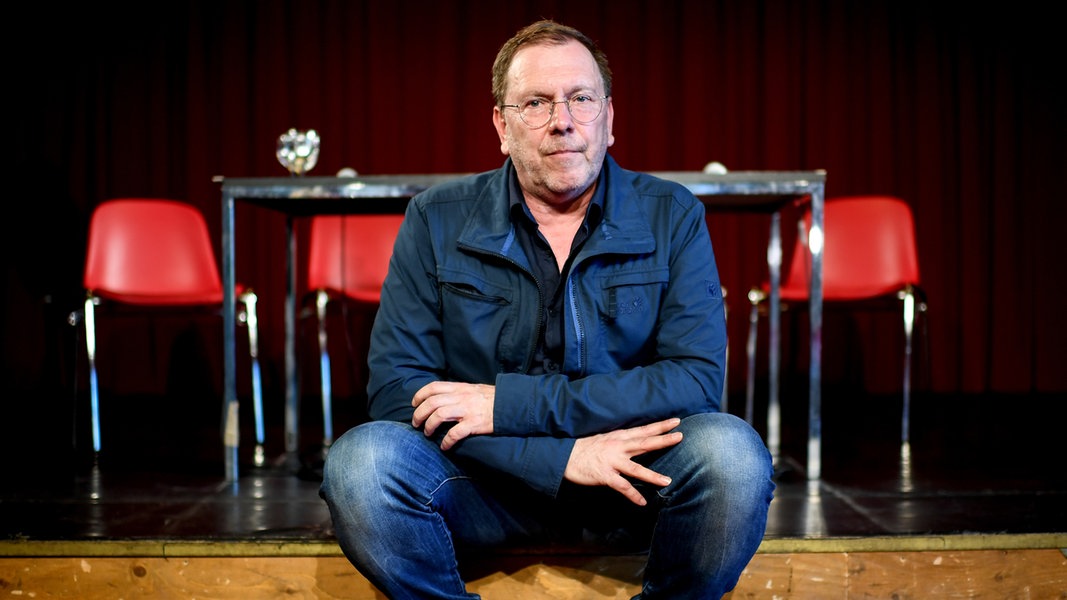As of: February 27, 2024 4:07 p.m
“Yes, nothing is ok” is written boldly in the headlines of many online culture sites today. That is the title of René Pollesch’s last theater production. The premiere was a good two weeks ago. He died yesterday at the age of 61 – suddenly and unexpectedly.
Many theater fans are shocked by this news – including NDR Kultur colleague Stefan Forth, who has followed Pollesch’s work for decades.
What made this theater maker so special?
Stefan Forth: René Pollesch was a unique exception in German-speaking theater. It starts with the fact that as a director he has practically never staged texts from other people, especially no dramas – i.e. no Schiller, Shakespeare or Ibsen. Pollesch directed Pollesch: texts that he often developed together with his ensemble. These were texts in which there was usually no plot and no characters in the true sense, i.e. no story that could have been told and summarized afterwards.
Instead, people on stage wrestled and argued about the existential issues of life: about the heated debate culture of our days, for example in “J’accuse”, 2021 at the Deutsches Schauspielhaus Hamburg, about working conditions for teleworkers and parcel delivery people, about artificial intelligence and thoroughly commercialized urban spaces , about the constant overtaxing of us humans in the world and above all and again and again about love.
Further information
René Pollesch was one of the great playwrights of the German theater scene. He also staged many plays at the Deutsches Schauspielhaus in Hamburg. more
That sounds cumbersome and complicated at first. How did Pollesch manage to fill large stages in Hamburg, Vienna and Berlin with such discourses?
Forth: He and his players always threw themselves into the productions with great fun, with great enthusiasm and with all their strength – often with magnificent stage designers, which the legendary designer Bert Neumann designed for him for a long time. There were circus wagons and rockets, choirs, chaos and cannons, video screens and much more.
At Pollesch there was and is always something going on on stage. He and his actors experienced the overwhelming demands in the theater. There was running, screaming and sometimes shouting “shit” when someone got tangled up in the text loops. That could sometimes seem like a lot of anarchy, but Pollesch always had the place under control, made use of tabloid theater and comedies and occasionally quoted from films – from “Fantomas”, for example, the French-Italian crime series from the 1960s – years. He also used cutting-edge sociological or philosophical texts because Pollesch was always very close to the pulse of the times with his topics – topics that we all sometimes despair about. Many people could laugh out loud with Pollesch at this despair. The man made folk theater for thinking people.
He had great success with this. He has won several dramatist awards and was a welcome guest at all major German-speaking theaters. How do you explain that practically everyone wanted to work with him?
Forth: As a theater person, he was an incredible powerhouse and a real team player with whom actors enjoyed working because he took them as seriously and as important as probably few other directors. René Pollesch was really and seriously interested in the people around him, listened to them and was a down-to-earth guy despite all the theater anarchy. His standard outfit at premieres was the legendary worn leather jacket and jeans. For him, theaters were lively, open places; Spaces in which people meet, have fun, sometimes celebrate together and think about life and philosophize together. He did all of this with admirable creative energy and always pushed his limits.
The theater was his life and his family: Sophie Rois, Martin Wuttke, Fabian Hinrichs – the list of big names of players who worked very closely with him again and again is long. Together with Pollesch, they have created something unique: a theater that did not exist anywhere else and that will probably never exist in this form again. Without René Pollesch, German-language theater would be different today. He inspired many and provided important impulses for a new, less artful or artificial tone on the stages, for more liveliness and less conceit. René Pollesch, one of the most important German theater makers of our time, has died. His death leaves a huge gap.
The conversation led Julia Westlake.
Further information
Heidi Hoh, the heroine of this radical soap, is a “fully automated customer service agent” looking for happiness and success in an alienated world.
extern
Further information
Queer people, Nazi euthanasia or antique materials: the North German stages are about diversity and cohesion. more
This topic in the program:
NDR Culture | Journal | 27.02.2024 | 4:15 p.m
